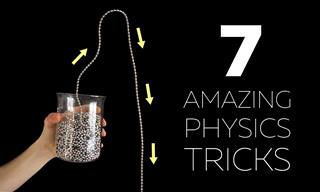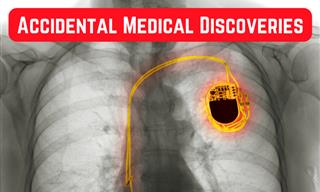

While fasting, the human body enters a metabolic state called ketosis, which means that the body begins to rely on fat instead of glucose as a source of energy. One of these energy sources, collectively known as ketones, is a molecule called β-Hydroxybutyrate.
According to senior study author Dr. Ming-Hui Zou, "previously, studies on ketone bodies focused on energy metabolism, but this study showed that there are other physiological effects which regulate cell cycle to retardate aging progression."
A previous study, carried out at Harvard University in 2017, found that the activity of mitochondrial networks inside our cells can become altered due to fasting, in turn leading to better health, slower aging, and an increased lifespan.

Zou's study, though, aims to explore how high levels of β-Hydroxybutyrate might display similar effects by interfering with senescent cells, which are cells that are unable to divide or multiply.
The team discovered that β-Hydroxybutyrate actually slows down these senescent vascular cells at the perfect moment, which prompts them to divide, thereby preventing them from aging. When tested on mice, the team discovered that it was also able to keep blood vessels young by promoting stem cell factors that protect against DNA-related senescence.

"We think this is a very important discovery, and we are working on finding a new chemical that can mimic the effect of this ketone body's function," said Zou.
"We're trying to take the global approach to reducing cardiovascular disease and Alzheimer's disease. It's difficult to convince people not to eat for the next 24 hours to increase the concentration of this compound, and not everybody can do that, but if we can find something that can mimic this effect and people can still eat, it would make life more enjoyable and help fight disease."

Not Only Covid-19: 5 Historically Significant Vaccines
Infectious diseases were a problem long before Covid-19. These are 5 of the most historically important vaccines that made the world safer.
 5:14
5:14
Studying Dolphins May Be Key to Advancing Medicine
Scientists have noticed a strange behavior in red sea dolphins, and they believe this is a form of self-medication. Learn why this discovery is so important.

Forget Apples! It's an Egg a Day That Keeps the Doc Away...
According to new research, it could actually be an egg a day that keeps the doctor away.Find out more here!

5 World-Changing Medical Advances From the Past Decade
Perhaps the most important technological advancements are those related to healthcare. Here are 5 such incredible medical breakthroughs from the past decade.

This Is What’s Currently Known About COVID-19 Immunity
We now know for certain that recovering Covid-19 patients possess antibodies for the illness. What does that mean regarding their immunity for reinfection?
 5:47
5:47
Shocking! This Is What Chocolate Does to Your Arteries...
Can chocolate cause strokes? Find out in this informative video from Dr. Greger.
 7:00
7:00
How To Be Sure Your Dog Adores You
10 scientific ways to know if your dog loves you
 17:48
17:48
This Visual Shows the Science Behind the Shape of Rivers
A fascinating visual model that explains why and how rivers change their course.
 14:24
14:24
Are Underwater Turbines the Answer to Our Energy Question?
One of the most promising technologies in the renewable energy market is the ocean. Learn all about it.

First US Embryo to be 'Edited'; Rise of Genetic Changes!
Could the first human embryos be genetically modified?

INTERACTIVE: A Guide to the Workings of the Human Body
The human body is the most complex machine known to man, and the amount of things it has to do to keep us alive is incredible. View this interactive guide now.

These Archaeological Finds Left the World Mystified
Find out more about the most mysterious discoveries that archaeologists made.
 11:39
11:39
Is There Any Way To Destroy or Deflect Asteroids?
Watch an interview with Cathy Plesko, a leading scientist working on preparing for the dangers of an asteroid attack
 6:33
6:33
The Story of the Internet: Who REALLY Invented It?
Who really invented the internet, and why did they REALLY do it?

10 Fascinating Facts About the Subconscious Mind
10 facts about the way the subconscious mind works
 23:26
23:26
Incredible: This Man Got the First Double-Arm Transplant
Felix Gretarsson got burned in both arms and needed the new ones. For that purpose, he went through history's FIRST 2-arm transplant.
 4:13
4:13
What Does Medicine ACTUALLY Do In the Body? Fascinating.
What really happens in our bodies when we take medicine, have you ever wondered? This video will answer your question.
 26:43
26:43
These 20 Tech Inventions Will Define the Next Decade
The future is here. Check out some emerging technologies that are all set to chane our world forever.
 33:50
33:50
The Future is in Our Hands - Next Generation Technology
These young brilliant minds grind hard at finding and creating solution to waste recycling, and the results are promising.

New Study: There is a Sure Way to Slow Aging
This new study confirms what has long been suspected: The less calories we consume, the slower we age.

These Wacky Inventions of the Past Appear Odd to Us Today!
These vintage tech inventions may look very interesting or even incredible, but their practicality today is questionable...
 5:56
5:56
What on Earth Is a Black Hole? This Video Explains All...
What on Earth are black holes, how do they affect us, and should we be at all worried about their existence? Find out here.
 19:05
19:05
What’s it Like Using a 115-Inch TV?!
This colossal 115-Inch TV will transform your viewing experience forever.

Scary Stories: 11 of the World's Creepiest Experiments
Truth is stranger than fiction, and this can be said for occurrences in the scientific world too. Here are 11 of the world's creepiest experiments

Ancient Skull Found In China Unlike Any Human Ever Seen
A newly-discovered skull in China had baffled scientists. This could mean we might have discovered an entirely new species of humans.

20 Incredible Inventions That We Have Completely Lost
Here are some of the most amazing ideas and inventions we have ever seen. But, sadly, all of them have been lost to science in the mysterious mists of history.

Science Breakthrough: An Immunization Against Skin Cancer?
This scientific breakthrough offers hope for those who are struggling with skin cancer. You are now invited to discover more about this revolutionary vaccine.
 6:47
6:47
7 Exciting Physics Tricks You Have to See!
Watch these seven remarkable physics tricks in this exciting and fun video.

TRIVIA: 25 Shocking Differences Between the Sexes
Did you know that there are some vast differences between the sexes? These 25 scientific facts will probably come as a big surprise to you, they did to me.
 10:01
10:01
19 Things to AVOID to Make Your Phone Live Longer
19 common mistakes we all make, that make our phones age quicker.

These Will Give You True Perspective About Our World
Just to give you an idea of how big the Earth really is in true perspective to all the other heavenly bodies up there in the cosmos.

These Inventions Prove the Middle Ages Were Not So “Dark”
These groundbreaking inventions prove the Middle Ages were not so “dark,” after all!

Wow! Who Knew That Jupiter Was So Mesmerizing?
Take a look at Jupiter like you've never seen it before!

25 Pics Showing How People in the Past Imagined the Future
Let’s see how the people of the past imagined the future and find out if their fun predictions came true with these 25 vintage pictures
 5:05
5:05
How Do the Drugs We Take Affect Our Brain?
We take many pills these days. What is it exactly that they DO to our brain? Find out now.
 1:53
1:53
Sci Fi Tech: Jetpack Rescue!
Paramedics in Britain are being trained to conduct mountain or sea rescues using jet suits. Find out more.
 3:16
3:16
You Wouldn't Believe How Far Technology Has Come
Take a look at the advancements of technology in this video. Impressive.
 3:16
3:16
Discover How Anesthesia Affects Your Body and Mind
If you were ever curious about how exactly anesthesia works, then this video has all the answers!

Is it REALLY the Coffee that Wakes Us Up in the Morning?
A recent study has revealed that the coffee you drink may just be a placebo...

10 Classic Paradoxes fom Philosophy, Math, and Physics
in every sphere of human knowledge, we’re bound to run into inconsistencies. That’s how fascinating paradoxes like these are born.

These Are the Miracles That Happen in Our Bodies Every Day
There is a lot that happens inside our bodies every single day. Did you know any of these facts?

These Things All Say Something About Your Body Or Mind
There are many things that you can determine about your body and mind just by looking at yourself. Here are 10 things that your body says about you.
 15:55
15:55
This Incredible Documentary Takes You Into the Human Body
A beautiful and graphically advanced animation sheds light on the mysteries of the human body.

Chocolate Exposed! Here's What It Does to Your Brain!
Just what is it that makes chocolate so irresistible to so many people around the world? Find all of the answers in the article.

6 Remarkable Yet Overlooked Minds That Shaped Our World
These underappreciated geniuses deserve more recognition.

You Won't Believe That These Things Exist in Japan...
If there's one place on this planet that well and truly at the forefront of modern technology, it has got to be Japan, as these inventions prove...

6 Fascinating Stories of Accidental Medical Discoveries
From penicillin to pacemakers, here are the medical breakthroughs that were discovered by accident.


